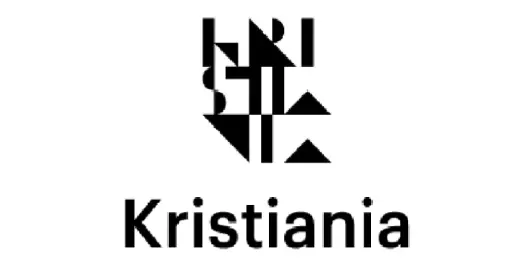Ledig stilling på Universitetet i Oslo
Blindern og Urbygningen (Foto: Wikimedia og Colourbox)
Two doctoral research fellowships (SKO 1017) - Lifetimes: A Natural History of the Present
Deadline 23.11.2018
Job description
Universitetet i Oslo
The University of Oslo is Norway’s oldest and highest ranked educational and research institution, with 28 000 students and 7000 employees. With its broad range of academic disciplines and internationally recognised research communities, UiO is an important contributor to society.
The Department of Culture Studies and Oriental Languages(abbreviated IKOS from its Norwegian name) is one of the seven departments at the Faculty of Humanities. The Department has a broad competency in the study of religion and culture and in language based area studies of South Asia, East Asia and the Middle East and North Africa. The Department has several study programmes at both BA and MA levels. Among the Department's 110 employees about 40 are PhD and Postdoctoral Fellows.
Two doctoral research fellowships (SKO 1017) are available at the Department of Culture Studies and Oriental Languages, University of Oslo. The two fellowships are part of the RCN-funded project “Lifetimes: A Natural History of the Present” led by Prof. Helge Jordheim.
LIFETIMES seeks to write the natural history of the present as an entanglement between time scales and life scales. In this way it wants to bridge the gap between natural and human history by means of a theory of lifetimes. The areas of investigation are Health and Medicine, Engineering and Resource Management, Politics and Government, and the frameworks include natural history, heritage, and future history.
The first PhD position will focus on how lifetimes are being constructed and deployed at the interface between science communication, popular science, and popular culture and are linked to political agendas, strategies and tactics. The successful applicant should have background in Cultural History, STS (Science and Technology Studies), History of Science, Media History or related methods of enquiry, and should be able to work also with Norwegian sources. The leading question for this project will be how the vocabularies of climate change enter into political discourse by way of various popular genres and modes. Prior fieldwork or research experience in the field will be a plus.
The second PhD project will focus specifically on science fiction dealing with climate change, such as climate fiction (“cli-fi”), ecofiction or anthropocene fictions, and how climate change discourses give shape to visions of the future. The successful applicant should have a background in Literature, Visual Culture Studies, Environmental Humanities or similar fields. The project should explore how variations in different climate change affected futures – postapocalyptic landscapes, ruins etc. – depend on geography, ethnicity or cultural identity and might contain a comparative element.
PhD applicants must frame their project proposals within the overall framework of the LIFETIMES project. Candidates are expected to familiarize themselves with the LIFETIMES framework from our website: http://temporalities.no
The person appointed will be affiliated with the Faculty's organized research training. The academic work is to result in a doctoral thesis that will be defended at the Faculty with a view to obtaining the degree of PhD. The successful candidate is expected to join the existing research milieu or network and contribute to its development. Read more about the doctoral degree.
The appointment is for a duration of 3 years. All PhD Candidates who submit their doctoral dissertation for assessment with a written recommendation from their supervisor within 3 years or 3 ½ years after the start of their PhD position, will be offered, respectively, a 12 or 6 month Completion Grant.
Qualification requirements
- A Master's degree or equivalent in Cultural History or related fields relevant for the project. The Master's degree must have been obtained and the final evaluation must be available by the application deadline.
- Fluent oral and written communication skills in English
- Other relevant language qualifications
- Personal suitability and motivation for the position.
To be eligible for admission to the doctoral programs at the University of Oslo, applicants must, as a minimum, have completed a five-year graduation course (Master’s degree or equivalent), including a Master’s thesis of at least 30 ECTS. In special cases, the Faculty may grant admission on the basis of a one-year Master course following an assessment of the study program’s scope and quality.
In assessing the applications, special emphasis will be placed on:
- The project's scientific merit, research-related relevance and innovation
- The applicant's estimated academic and personal ability to complete the project within the time frame
- The applicant's ability to complete research training
- Good collaboration skills and an ability to join interdisciplinary academic communities
Applicants who have recently graduated with excellent results may be given preference.
We offer
How to apply
The application must include:
- Application letter describing the applicant’s qualifications and motivation for the position
- Curriculum Vitae (with a list of education, positions, teaching experience, administrative experience and other qualifying activities, including a complete list of publications)
- Transcript of records of your Bachelor’s and Master's degrees. Applicants with education from a foreign university must attach an explanation of their university's grading system
- Project description, including a detailed progress plan for the project (3 - 5 pages, see Template for project descriptions)
The application with attachments must be delivered in our electronic recruiting system, please follow the link “Apply for this job”. Please note that all documents must be in English or a Scandinavian language.
Educational certificates, master theses and the like are not to be submitted with the application, but applicants may be asked to submit such information or works later.
Short-listed candidates will be invited for an interview.
Formal regulations
Please see the guidelines and regulations for appointments to Research Fellowships at the University of Oslo.
According to the Norwegian Freedom and Information Act (Offentleglova) information about the applicant may be included in the public applicant list, also in cases where the applicant has requested non-disclosure.
The appointment may be shortened/given a more limited scope within the framework of the applicable guidelines on account of any previous employment in academic positions.
The University of Oslo has an agreement for all employees, aiming to secure rights to research results etc.
Contact information
Apply for this job















